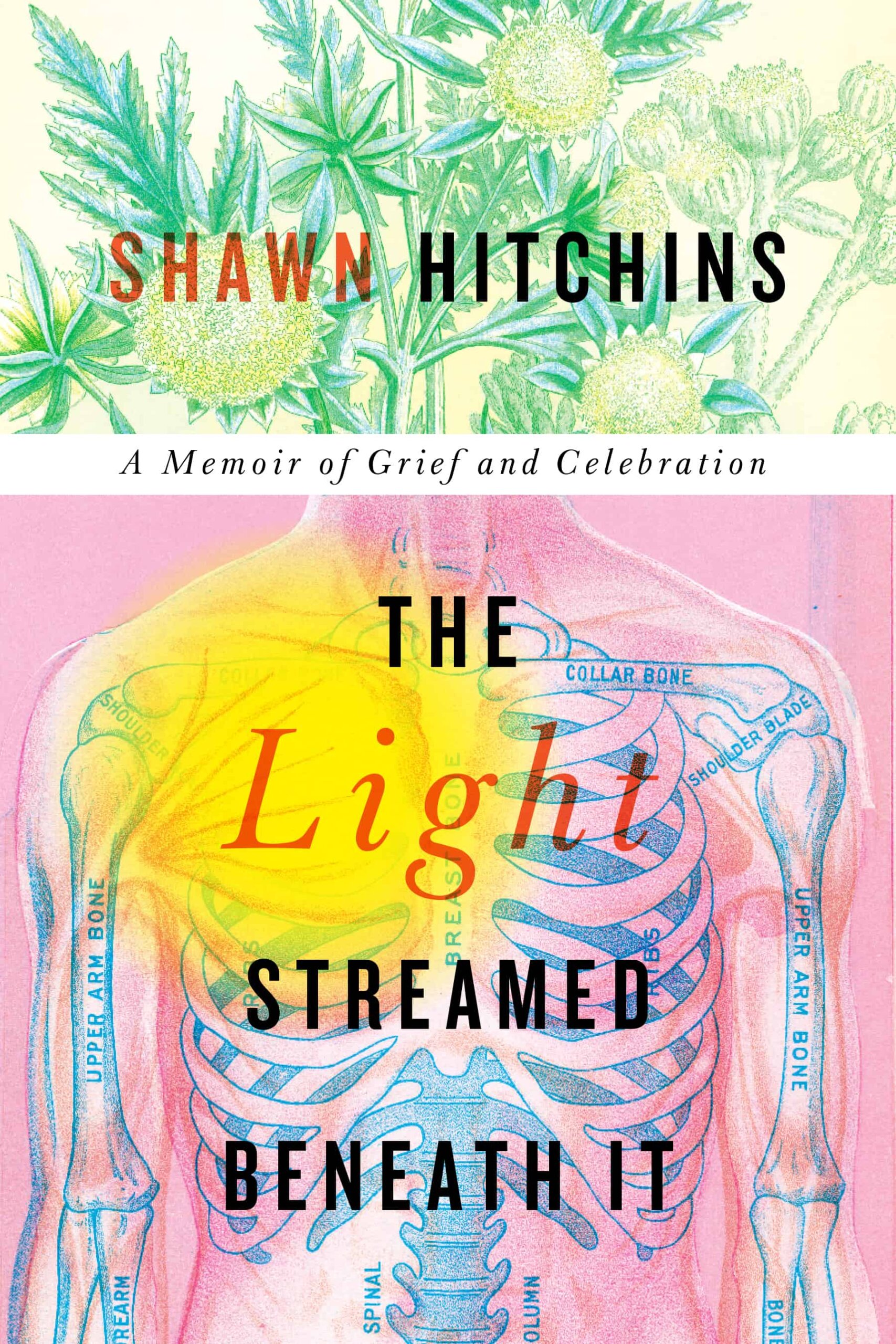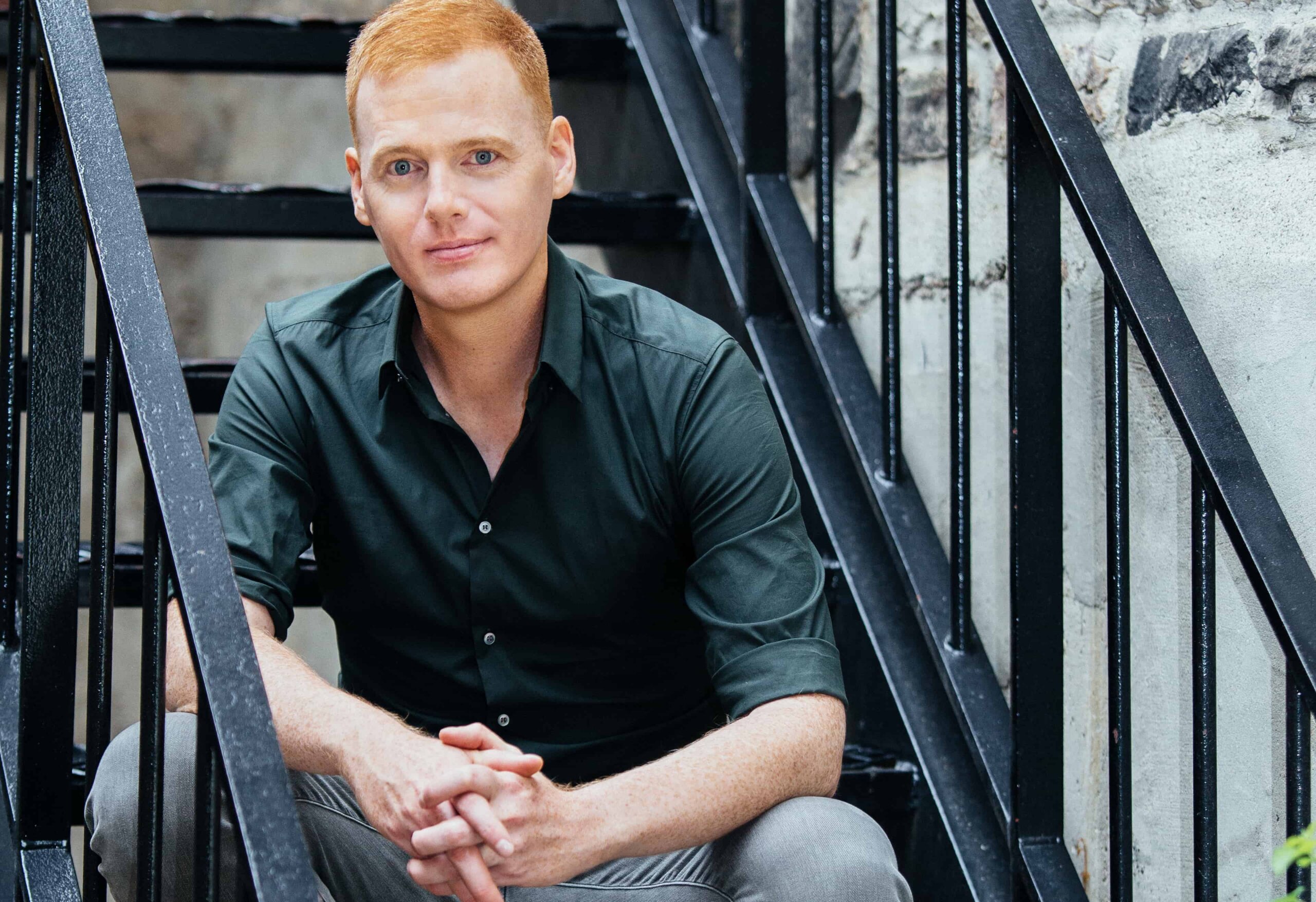Several years ago, the unthinkable happened to Shawn Hitchins: he lost two great loves within five months of each other. Matt, his stalwart ex-husband who continued to play an important role in his life, died following a tragic accident; David, a fiery lover who he was planning a future with, took his own life. Back-to-back, these devastating losses precipitated a crisis of faith for the 41-year-old writer and comedian. Known for mining his personal pitfalls for laughs and applause, Hitchins suddenly found himself questioning everything he once believed to be true.
“I think we need to start putting expiry dates on our coming out stories, because they fall apart as we age,” Hitchins says on the phone from his home in Toronto. “My own coming out story reinforced that I didn’t need family, that it was okay to be scrappy and resilient and independent. That I didn’t need community—and that quickly fell apart as the universe tested me.”
As a flamboyant redhead born in the small town of Egypt, Ontario, Hitchins was used to wrapping his traumatic experiences in punchlines. His one-man show, Ginger Nation, was a hilarious missive on being gay, ginger and proud, and his first memoir, A Brief History of Oversharing from 2017, was a highly entertaining collection of self-deprecating essays that spoke frankly about his successes and failures. But the bandages are off in his latest book, The Light Streamed Beneath It: A Memoir of Grief and Celebration. In it, Hitchins reveals his recent wounds, hanging his words on top of what he calls the bones of his experience. The result is a clear-eyed and poetic elegy to two loves and a path forward for queers struggling with grief.
“When death happens in our life, we don’t know how to do it,” says Hitchins, who felt ill-prepared to deal with loss. Like many queer people, he had a fast-paced and independent life as well as a complicated relationship with religion and spirituality. In the aftermath of tragedy, he found himself without the tools to cope. But with bundles of comfort from chosen family, some therapy and a voracious amount of reading, Hitchins had a spiritual awakening. He realized he couldn’t streamline his mourning or bypass his pain, but rather he needed to access that pain and lean into comfort, spirituality, symbolism and metaphor.
“When your loved one dies you feel incredibly alive. And that’s what I want people to lean into⎯that sense of aliveness.”
“It’s not like I suddenly started believing in theology or scripture, or that there’s this man floating in the sky,” he says. “I look at it, rather, as embodiment. It’s something you feel. I could feel my chest glow.” In the book, Hitchins lovingly describes being in the room as Matt passes away; the hospital room becomes suffused with light. “It was one of the most beautiful experiences. Horror was at the forefront, but also in the background—it was life altering. I don’t look at it like a gift, but rather an awareness that when your loved one dies you feel incredibly alive. And that’s what I want people to lean into⎯that sense of aliveness.”

Hitchins breathes so much life into a book about death, and he gives both partners second lives through honest and loving depictions of his time with them. Both Matt and David were opposites in many ways, but the central thing they had in common was Hitchins’ love. And Hitchins is not afraid to get messy when writing about these complicated relationships: jumping through time, he lets us inhabit his own complex feelings, from the excitement and joy he felt hooking up with stranger David on his last morning in San Francisco to the questions and challenges that came up while negotiating family and friendship with Matt post-divorce. There is an urgency to this book, a desire to capture the brilliance of these loves before they fade, and Hitchins writes about it all with kindness and love. There are even glimpses of Hitchins’ sense of humour in moments, as he deftly infuses the darkness with the light (for instance, he and Matt joked about choreographing the first dance of their wedding to the Law and Order theme song). The result is a beautifully written exploration of grief that leaves us with hope and a profound sense of gratitude for time we get to spend with loved ones.
“This book isn’t like my other writing,” says Hitchins. When he looks back at his first memoir, Hitchens admits that he is covering up a lot of his feelings. But with The Light Streamed Beneath It there is no shame. “I don’t know how to go back to comedy, because the ability to point out everything that’s wrong has shifted in me. Now, I look at the things that are right. Where’s the care? Where’s the good? That doesn’t necessarily make for good comedy. I’m also more interested in solutions. Sure, tell me something that’s funny, but also show me what’s working. I don’t want to break things anymore.”


 Why you can trust Xtra
Why you can trust Xtra


